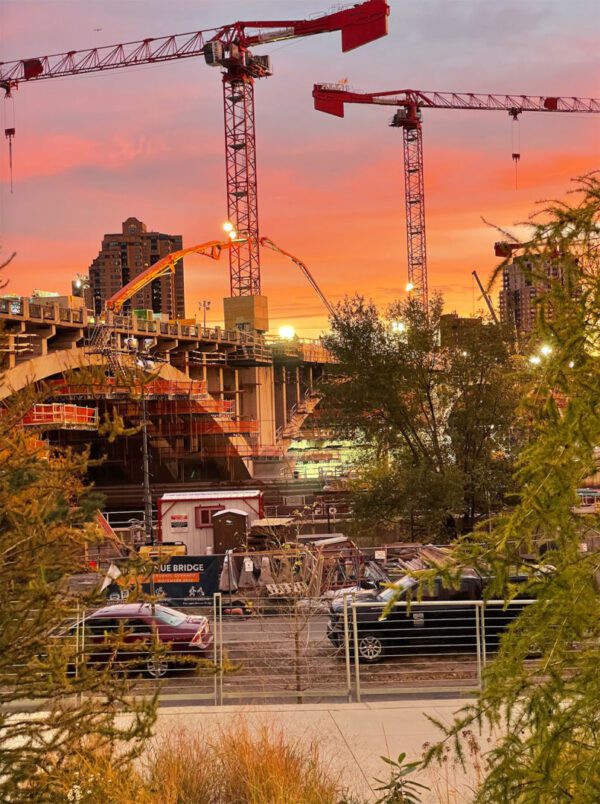Historic 3rd Avenue Bridge nears completion

COWI in North America is nearing completion of its rehabilitation work as the construction engineer for Ames Construction on the historic Third Avenue Bridge, located in Minneapolis, over the Mississippi River. The landmark structure carries road traffic across the Mississippi River and upper fringes of Saint Anthony Falls and can be considered a major access point for the U.S. Bank Stadium, home of the Minnesota Vikings. According to the Minnesota Department of Transportation (MnDOT), it is the last major reinforced-concrete Melan arch bridge constructed in the Twin Cities and is protected for its historic integrity and architectural qualities.
The multi-span Melan arch bridge meets with Third Avenue in downtown Minneapolis at its south end, but curves as it crosses the river, and connects with Central Avenue on its north end. The shallow “S” curve in the bridge was built to avoid fractures in the limestone bedrock that supports the bridge piers. COWI was responsible for the staged construction analysis of the existing and new bridge structure, design of the temporary falsework, production of the fabrication drawings for the concrete elements, geometry control for casting, development of the 3D Bridge Integrated Model, and engineering support.
COWI utilized its innovative Bridge Integration Modeling (BrIM) approach during the pre-construction of this Construction Manager-General Contractor (CMGC) project to assist in the visualization of the step-by-step construction phases proposed. The BrIM process has helped the construction team proceed with the integration of the complex construction sequencing, scheduling, and planning for upcoming construction activities. COWI began the construction engineering work for the bridge in 2019 and the work includes the re-decking and rehabilitation of the bridge to achieve a 50-year design life, whilst preserving its historic design elements. During reconstruction, the main goals were to minimize the impacts on the local community and the environment, while reducing the closure of this important artery of downtown Minneapolis. There are also barriers, railings and lighting added to the bridge, as well as minor grading at the bridge approaches.
Ivan Liu, Project Manager, COWI, said: “The unique aspect of the Third Avenue Bridge is its intricate demolition and reconstruction sequence performed on the existing structure. Due to the variety of construction limitations from bridge access issues, structural capacity concerns, and equipment loading, it led to a multi-phase construction sequence for its complex bridge geometry. In Pre-Construction phase of the project, FINLEY used a 3D bridge integrated model to develop the visualization for many proposed construction sequences to provide the CMGC group the necessary tools to select the right construction method to avoid potential issues and clashes that may occur during construction. The Bridge Integrated Model in the 3D environment was an effective tool to help the major parties of this CMGC project visualize what could be feasible and successful for the project’s complex construction sequence.
For FINLEY, the use of the bridge integrated model proved to be an efficient tool for multiple construction engineering tasks especially when it involved aspects of the Third Avenue Bridge’s complex geometry.”
About COWI
Together with customers, partners and colleagues, we shape a future where people and societies grow and flourish. We do that by co-creating sustainable and beautiful solutions that improve the quality of life for people today and many generations ahead.
Our starting point is gaining a deep understanding of our customers, their aspirations and concerns. This is what sets us apart and how we deliver long-term value.
Primarily located in Scandinavia, the UK, North America and India, we currently number 6,900 people, who offer our expertise in engineering, architecture, energy and environment.


